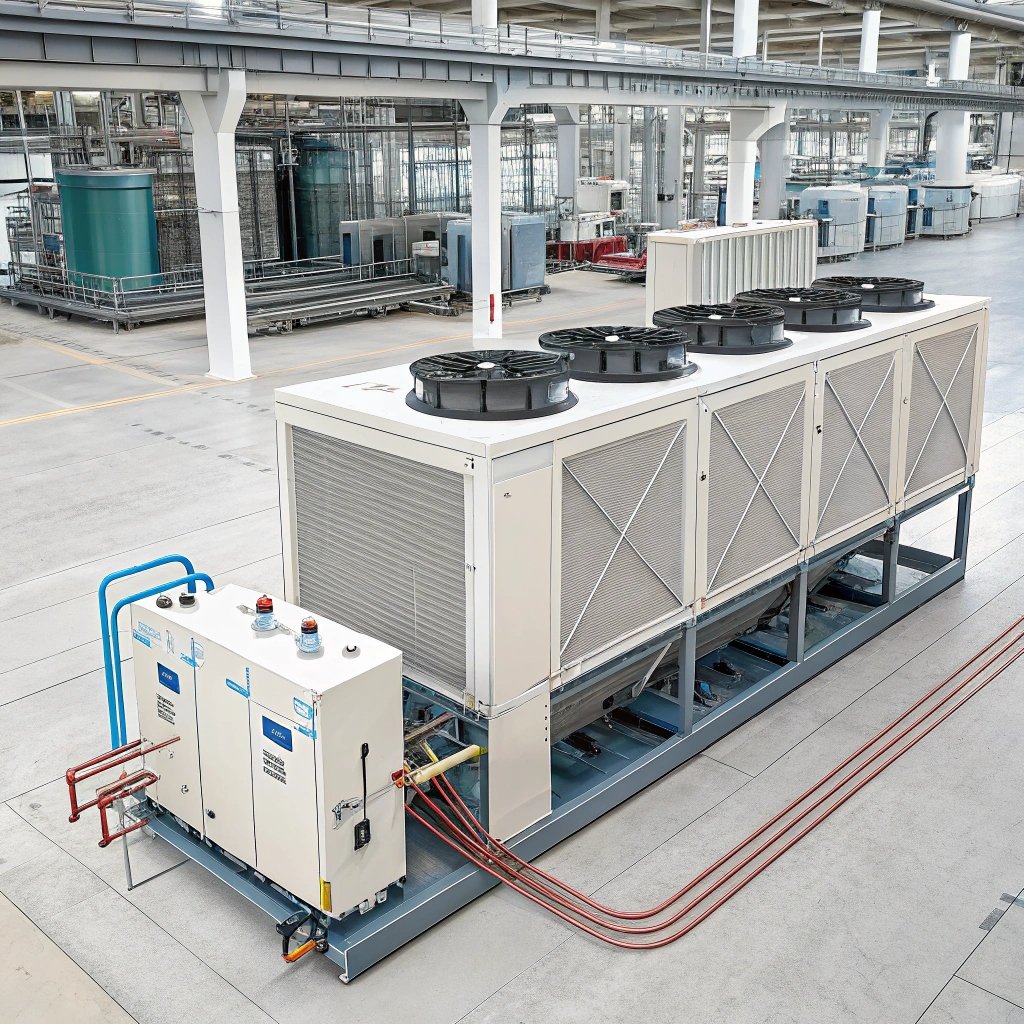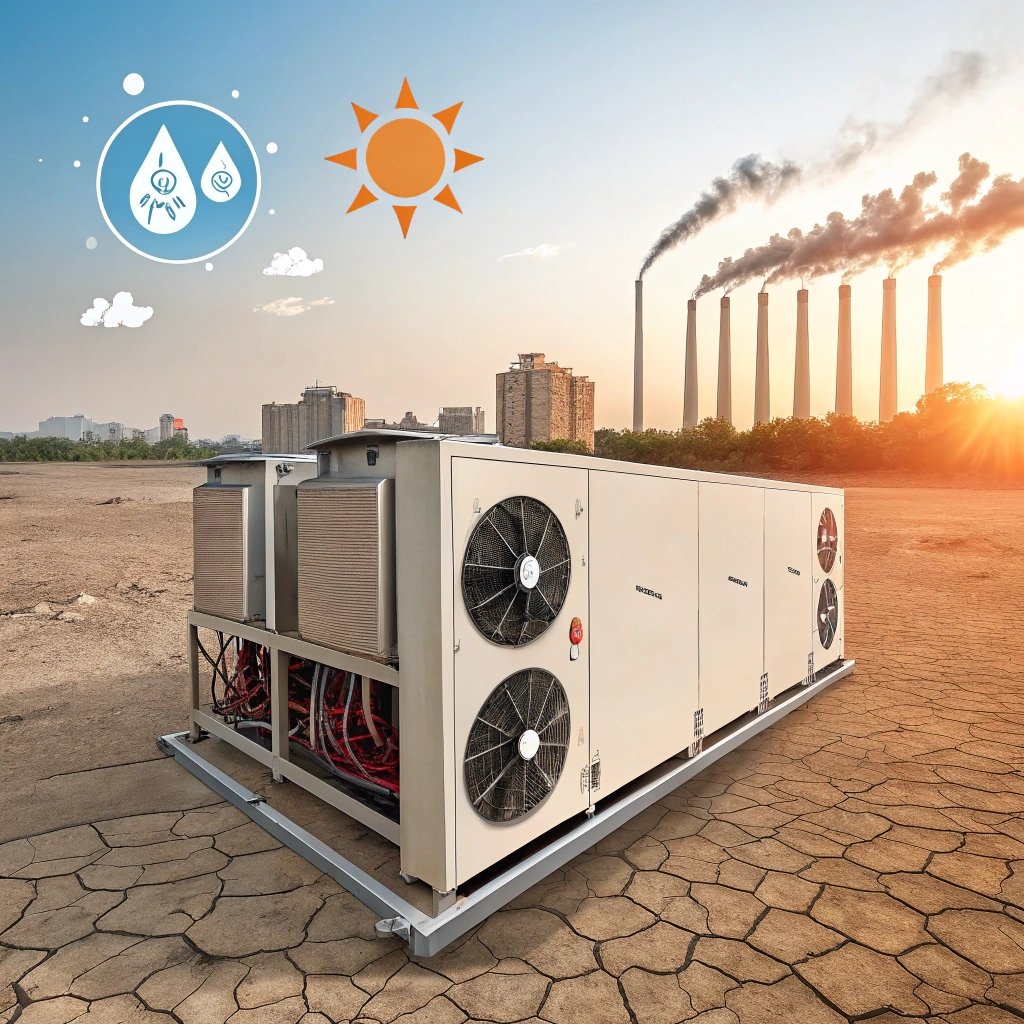Which are the common errors in air-cooled chillers?

Leading paragraph:
Air-cooled chillers are vital in various industries, but like all machinery, they can face performance issues. Understanding these common errors helps prevent downtime and expensive repairs.
Featured Paragraph:
One of the most common problems with air-cooled chillers is insufficient cooling. This can be caused by multiple factors such as dirty condenser coils, low refrigerant levels, or a faulty compressor. Regular maintenance and timely intervention can mitigate these issues and maintain optimal performance.
Transition Paragraph:
In this article, we'll explore the most common errors faced by air-cooled chillers and offer solutions to help you troubleshoot and maintain your cooling systems efficiently.
What is the common problem in chillers?
Leading paragraph:
Air-cooled chillers are complex systems, and understanding the issues they commonly face is crucial for effective operation. Many factors contribute to poor performance, but by addressing them, you can extend the life of your chiller.
Featured Paragraph:
The most common problem in air-cooled chillers is inefficient cooling. This often stems from issues like clogged condenser coils, improper refrigerant levels, or a malfunctioning compressor. Identifying the root cause early can help you maintain a consistent cooling cycle.

Dive deeper Paragraph:
Air-cooled chillers have several components that must work in unison to maintain an effective cooling cycle. Understanding the underlying causes of inefficient cooling can help you make the right repairs before they become major problems. Let’s break down some common issues:
1. Dirty Condenser Coils
The condenser coils play a crucial role in releasing heat absorbed by the refrigerant. Over time, dust, dirt, and debris accumulate on the coils, blocking airflow and causing heat dissipation issues. This leads to the chiller working harder to maintain cooling, which increases energy consumption and can cause overheating.
Solution:
Regular cleaning of condenser coils is essential. Cleaning should be done at least once a year or more frequently depending on the environment in which the chiller operates. This can be done using compressed air, coil brushes, or specialized cleaning agents. Proper airflow and cleanliness around the coils can also help prevent blockages.
2. Low Refrigerant Levels
Refrigerant is the substance that absorbs and transfers heat within the chiller. If the refrigerant levels drop, the chiller cannot perform the cooling cycle properly, leading to a reduction in performance. Refrigerant levels drop primarily due to leaks in the system.
Solution:
Check the refrigerant levels and inspect the system for leaks. If you find any leaks, they need to be repaired, and the system must be recharged with the correct type of refrigerant. Regular monitoring of refrigerant levels will help prevent this issue and ensure the chiller’s optimal performance.
3. Malfunctioning Compressor
The compressor is one of the most critical components in a chiller. It pumps refrigerant through the system, allowing heat exchange to occur. If the compressor is malfunctioning, the system will fail to maintain the cooling cycle.
Solution:
A malfunctioning compressor can often be traced back to electrical issues, improper lubrication, or wear and tear. If the compressor is faulty, it may need to be repaired or replaced. Regularly checking for signs of failure, such as unusual noise or vibrations, can help prevent catastrophic failure.
4. Blocked Airflow
For an air-cooled chiller to operate efficiently, it requires proper airflow to dissipate heat. Any blockage or obstruction in the air intake or exhaust can hinder cooling. This could be caused by debris, dirt, or even poor placement of the chiller.
Solution:
Ensure that the chiller has adequate space for ventilation and that the air intake and exhaust are clear of any obstructions. It is also important to regularly clean the surrounding area to prevent debris buildup. A chiller placed in a cramped or poorly ventilated space is more likely to experience airflow problems.
5. Faulty Expansion Valve
The expansion valve regulates the amount of refrigerant entering the evaporator, and it is crucial for the efficiency of the cooling process. If it becomes clogged or faulty, the refrigerant flow can be interrupted, leading to uneven cooling and potential freezing inside the evaporator.
Solution:
If the expansion valve is malfunctioning, it may need to be cleaned or replaced. Regularly check the refrigerant pressure and temperature to identify any irregularities that could indicate an issue with the expansion valve.
6. Electrical Failures
Air-cooled chillers rely on several electrical components, such as thermostats, sensors, and switches, to monitor and control their performance. If any of these components fail, the chiller may stop functioning correctly.
Solution:
Perform regular inspections of the electrical components to ensure they are working properly. If the system isn’t cooling correctly, check the electrical circuits and connections. Faulty wiring or a damaged control panel might need professional attention. Regular maintenance can prevent these issues from escalating.
7. Improper Installation or Sizing
Sometimes, air-cooled chillers experience performance issues due to improper installation or incorrect sizing for the facility's cooling needs. An undersized chiller will struggle to meet demand, while an oversized unit may cycle inefficiently.
Solution:
Ensure that the chiller is installed by a professional who understands the unit’s requirements. Proper sizing and installation are critical for long-term efficiency. If you believe your chiller was incorrectly sized, it may be worth consulting with an expert to determine whether adjustments are necessary.
8. Water Pump Failure (if applicable)
In some air-cooled chiller systems, a water pump is used to help circulate the refrigerant or cool the coils. A failure in the pump can lead to inadequate cooling and potential system failure.
Solution:
Check the water pump periodically for proper function. If the pump is not operating as expected, it may need to be repaired or replaced. Regular checks on fluid levels and pump performance can help avoid pump-related failures.
9. Vibrations and Mechanical Wear
Over time, air-cooled chillers experience mechanical wear on parts such as fans, motors, and compressors. Vibration from these components can cause structural damage and reduce the overall efficiency of the system.
Solution:
Address any unusual vibrations or noises immediately. Regularly inspect the chiller for signs of mechanical wear. If parts are found to be worn or damaged, replacing them before they cause further damage will help keep the chiller running smoothly.
By identifying and addressing these common issues promptly, you can keep your air-cooled chiller running efficiently and avoid costly repairs or replacements. Proper maintenance and regular inspections are key to prolonging the life of your equipment.
Conclusion
Air-cooled chillers are essential for various industries, but they can suffer from common issues such as dirty coils, low refrigerant, and compressor failure. Regular maintenance is crucial for preventing these problems and ensuring reliable performance.
Insights:
Regularly checking the components of your air-cooled chiller can help you avoid significant issues. By understanding the common errors and addressing them promptly, you can save on costly repairs and extend the lifespan of your system.




